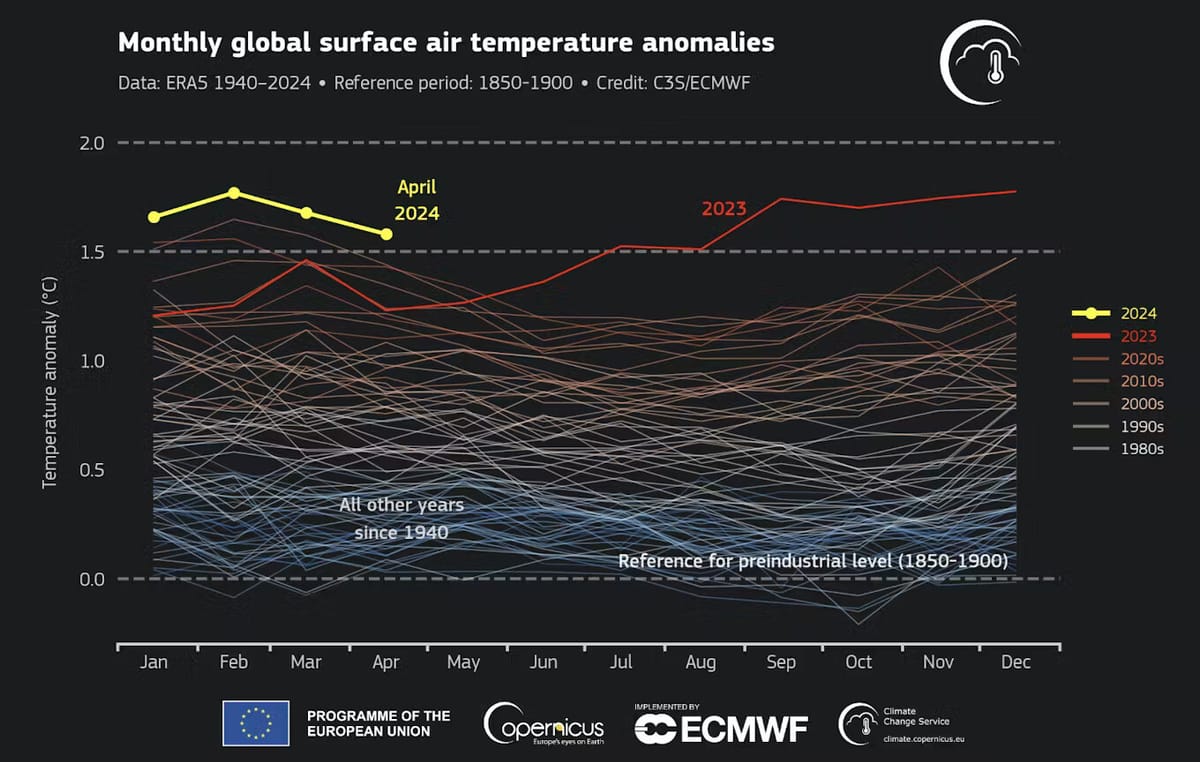Global Warming Exceeds 1.5°C Threshold for 10 Months, Urging Stronger Climate Action

The climate crisis is intensifying as global temperatures have remained over 1.5°C above pre-industrial levels for ten consecutive months, surpassing a key threshold established in the 2015 Paris Agreement. According to the European Union’s earth observatory, this year-long breach was confirmed in January.
The Paris Agreement aimed to limit global warming to “well below 2°C” and ideally to 1.5°C to prevent severe climate impacts. However, since July 2023, global temperatures have consistently exceeded this limit, raising alarms among scientists and policymakers.
The 1.5°C target is crucial to mitigate the worst effects of climate change, yet current trends indicate that efforts are falling short. Limiting temperature rise as much as possible is vital to avoid unforeseen risks to people and nature.
The Science Based Targets Initiative (SBTi) has called on businesses to rapidly cut emissions and achieve net-zero by 2050. Thousands of organizations have committed to this goal, recognizing the urgent need to transition away from fossil fuels.
Impacts of surpassing the 1.5°C limit are already evident. In 2022, Pakistan experienced devastating floods that killed over 1,700 people, and Asia faced record heatwaves reaching 40-50°C. Scientists warn that if temperatures rise further, extreme weather events will become more frequent and severe.
Pakistan climate advocate Hafiz Jawad Sohail highlighted the dire consequences of missing the 1.5°C target, stating that if temperatures rise above 2°C, survival will be precarious, writes Weforum.
While short-term breaches of the 1.5°C limit are alarming, experts caution against viewing them as outright failures. Temporary breaches shouldn’t distract from the ongoing need to reduce emissions and stabilize long-term temperatures.
Mukhtar Babayev, the incoming COP29 president, is pushing for more ambitious climate action to keep the 1.5°C target “within reach.” He advocates for enhanced climate goals and increased financial support for developing nations.
However, the world is currently on track for over 2.5°C of warming this century. Experts argue for a broader approach to climate action, focusing on tangible benefits like job creation, renewable energy, and public health improvements.
Suzy Goulding, head of sustainability at MSL, stressed the importance of relatable climate messaging. Communicating the impacts of temperature changes on businesses, communities, and individuals is more effective than abstract targets.
Goulding advocates for positive news stories to inspire action, demonstrating that climate challenges can be overcome. Focusing on innovation, investment, and community benefits can drive meaningful change.
